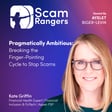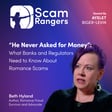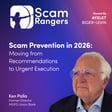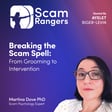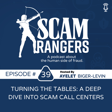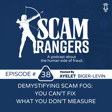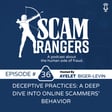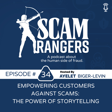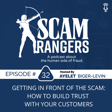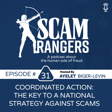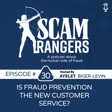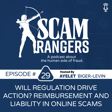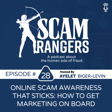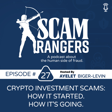
Hearts Exposed: Navigating the Boundaries of Free Speech and Scam Crimes, with Kathy Waters, Executive Director and Co-Founder, Advocating Against Romance Scammers
In this episode of Scam Rangers, we delve into the troubling world of romance scams and identity theft victims. Our guest, Kathy Waters, shares her insights into these scams and her advocacy work in supporting victims while pushing for regulatory changes on online platforms.
Key Takeaways:
1. Deception in Romance Scams: Kathy explains how scammers use stolen identities to create elaborate love stories, often set in distant locations, to manipulate and deceive their victims.
2. Kathy's Journey: Learn about Kathy's personal journey and what led her to become an advocate against scammers and a staunch supporter of victims.
3. Advocating for Change: Kathy and her team are actively working with lawmakers to change regulations and policies in the US governing online platforms to enhance user safety and protect vulnerable individuals from scams.
Explore the hidden world of romance scams, discover the resilience of identity theft victims, and understand Advocating Against Romance Scammer's unwavering commitment to exposing wrongdoers and creating safer digital spaces. Join us for a thought-provoking journey only on Scam Rangers.
Resources:
Advocating Against Romance Scammers: https://advocatingforu.com/ The petition can be found on the website.
World Romance Scam Awareness Day: https://protectingheartsday.com/
This podcast is hosted by Ayelet Biger-Levin who spent the last 15 years building technology to help financial institutions authenticate their customers and identify fraud. She believes that when it comes to scams, the story starts well before the transaction. She has created this podcast to talk about the human side of scams, and to learn from people who have decided to dedicate their lives to speaking up on behalf of scam victims and who take action to solve this problem. Be sure to follow her on LinkedIn and reach out to learn about her additional activities in this space. https://www.linkedin.com/in/ayelet-biger-levin/ Also check out https://scamranger.ai if you had received a message that you suspect is a scam
